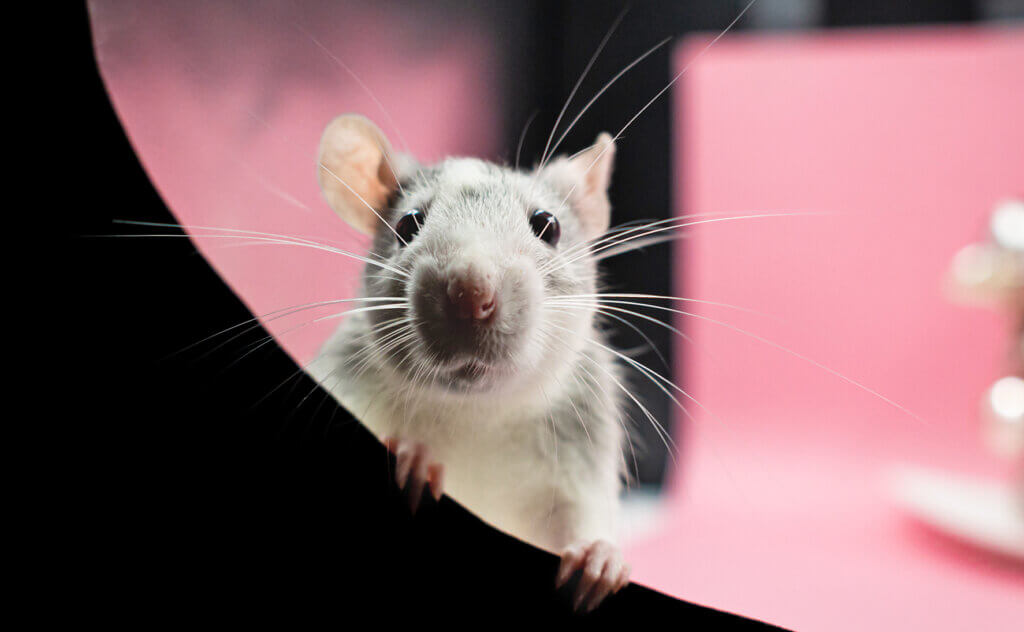What Does the Passing of the FDA Modernization Act 2.0 Mean for Animals in Basic Research?
Written by Dr. Katherine Roe
January 2023

In late 2022, Congress passed the FDA Modernization Act 2.0—a bill introduced by Sens. Rand Paul (R-Ky.) and Cory Booker (D-N.J.), put forth in the House of Representatives by Rep. Vern Buchanan (R-Fla.), and signed into law by President Joe Biden—ending a 1938 mandate that experiments on animals be used to assess the safety and efficacy of new drugs. Although it could have chosen to do so previously, the U.S. Food and Drug Administration (FDA) now has the statutory authority to consider evidence from non-animal methods—including data from in silico tools and complex in vitro models of human physiological systems, like organoids and organs-on-chips—when assessing whether a new compound can enter clinical trials with human volunteers.
This is a huge step forward, not only for reducing the use of animals in preclinical experimentation but also for improving the drug discovery pipeline. Using animal models to predict human responses not only reduces the accuracy of safety and efficacy information about new medications but also increases the cost and time it takes to move new drugs to market. Under the current animal-based paradigm, it takes an average of 15 years and up to $6 billion to get a new drug into the clinic. The potential for this groundbreaking legislation to benefit animals and humans alike is why more than 200 organizations—including biotech companies, medical associations, animal advocacy organizations, patient advocacy groups, and pharmaceutical companies—supported the bill.
But what does this mean for the future of animal-based experiments that aren’t preclinical in nature? A large percentage of experiments conducted on animals are not undertaken for the purpose of testing drug safety or efficacy or for developing new treatments or cures. These experiments, often referred to as “exploratory,” “mechanistic,” or “basic science” research, involve millions of animals each year and are fraught with the same translational limitations as preclinical animal models are.
But the future looks bright. Increasing awareness and acceptance of available non-animal technology and the limitations of animal-based models can only move the needle in the right direction. Many researchers who conduct basic science research with animals choose those models not because of their accuracy but because they have always been part of the biomedical research paradigm. They’ve seemingly been required by the FDA for preclinical research and, in some cases, the National Institutes of Health for grant funding or by editors or peer reviewers for scientific publications. A shift in this paradigm at the preclinical level could reverberate across the biomedical research community. Additionally, young scientists learn from their mentors, often adopting and mastering the techniques they are taught, leading to multiple generations of scientists who use the same basic methodology. In short, more scientists using non-animal methods now in response to the new legislation will expand their use exponentially in the future.
It’s worth pointing out that often, when the ethics or scientific utility of basic science experiments that use animals is called into question, the animal experimentation community tends to justify the harms inflicted on animals in its basic research by noting that all current medications were tested on animals. As this ceases to be true, it will become more difficult for those apologists to defend animal experimentation.
The passage of the FDA Modernization Act 2.0 signals that the public, the scientific community, and policymakers are finally ready to modernize the way biomedical research is conducted, with greater focus on the importance of human-relevant methods and greater awareness of both the ethical and scientific issues that surround animal experimentation. And PETA scientists are ready with a plan to take us the rest of the way! Read more about PETA’s Research Modernization Deal here.
